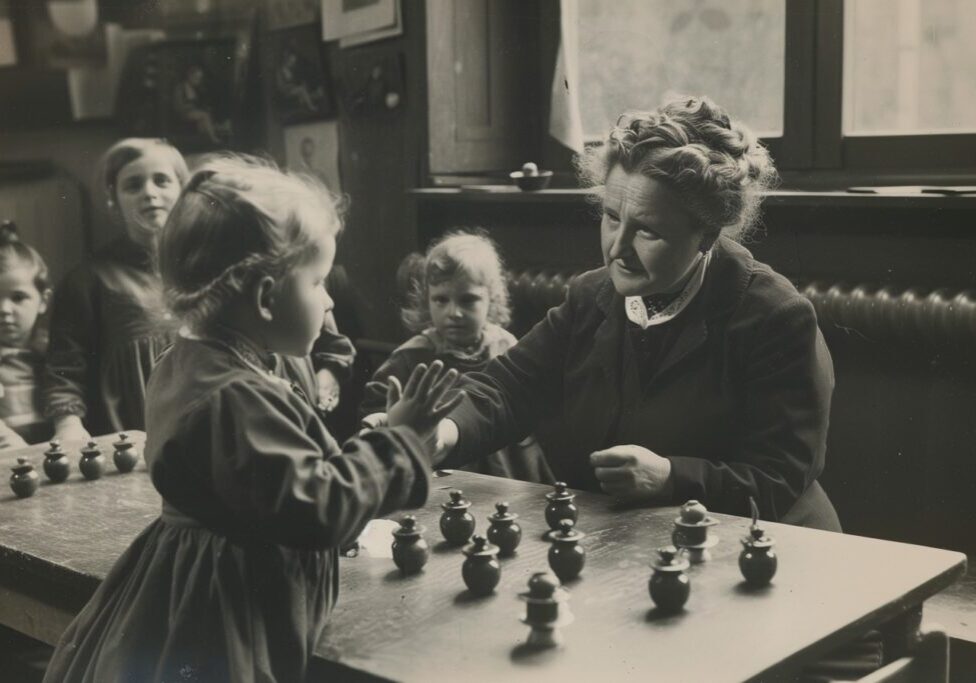The History of Montessori Education
Category: Insights

Montessori education stands as a beacon of innovation in the world of learning, founded on the visionary principles of Dr. Maria Montessori. As Italy’s first female physician, Montessori revolutionized early education by prioritizing the independence of children, respecting their natural development, and meticulously crafting environments that enhance their innate potential. This approach has not only challenged traditional educational models but has also proven its effectiveness in nurturing curious, self-motivated learners.
This blog post will guide you through the inspiring history of Montessori education, from its groundbreaking inception in the early 20th century to its prestigious status today as a globally embraced educational philosophy. By tracing the journey of Montessori’s transformative ideas, we will celebrate the profound impact they have had on educational practices worldwide, and why they continue to be indispensable in cultivating capable, well-rounded individuals.
The Origins of Montessori Education
The story of Montessori education begins with Maria Montessori, whose early experiences laid the groundwork for what would become a major educational movement. Born in 1870 in Chiaravalle, Italy, Montessori was a pioneer from the start, breaking barriers as one of the first female physicians in Italy. Her academic and professional journey, marked by curiosity and compassion, steered her towards educational theory, psychological research, and eventually, the development of her own educational method.
Maria Montessori’s Background
Maria Montessori’s interest in education was sparked by her work with children with disabilities. Appointed as a co-director of a training institute for special education teachers in 1897, Montessori began developing her educational strategies based on scientific observation and experimentation. Her approach was revolutionary: she saw potential where society saw limitation, insisting that these children could learn much more if properly supported.
Development of the Montessori Method
In 1907, Montessori had the opportunity to apply her theories to a broader child population when she opened the Casa dei Bambini, or “Children’s House,” in a low-income district of Rome. This first Montessori school was an instant success, demonstrating that children thrive in an environment that encourages self-directed learning through engaging activities and freedom within limits. Montessori’s educational practices emphasized practical life skills, sensory learning, and the development of autonomy, which were radical at the time but are now recognized as ahead of their time.
Children at Casa dei Bambini used unique learning materials designed by Montessori herself. These included practical items that children could use to develop life skills, as well as didactic materials that supported sensory development and academic learning. The success was palpable—children who were previously undirected and unsupervised were now engaged, orderly, and learning at a remarkable pace. Observers from around the world came to see Montessori’s methods in action, and her educational practices began to spread internationally.
Through her dedication to observing children and meeting their developmental needs, Maria Montessori laid the foundation for a method of education that respects and nurtures the potential of each child. Her pioneering work has left a lasting legacy, proving that education can transform lives when it aligns with the nature of learners and inspires them to reach their full potential.
Spread and Growth of Montessori Education
After the successful implementation of Montessori’s methods at Casa dei Bambini, her educational philosophy quickly captivated a global audience, spreading across continents and inspiring educators worldwide. The early 20th century saw Montessori education cross borders and oceans, adapting to various cultural contexts while maintaining its core principles.
Early Challenges and Successes
The spread of Montessori education was not without its challenges. In the early years, Montessori’s ideas faced skepticism from traditional educational systems which were hesitant to adopt her child-centered methods. Despite these hurdles, the tangible success of her students could not be ignored. By 1912, Montessori schools had opened throughout Western Europe and crossed the Atlantic to the United States, where they gained popularity among progressive educators and intellectuals.
Prominent figures, including inventor Alexander Graham Bell and his wife Mabel, were among the early adopters and advocates in North America. They helped establish the Montessori Educational Association at their Washington D.C. home in 1913. Thomas Edison, too, supported Montessori’s methods, recognizing their potential to foster creativity and independence.
Global Reach and Adaptation
Montessori’s reach extended beyond Europe and North America as educators from around the world sought to learn about her methods. By the mid-20th century, Montessori schools could be found in Latin America, Asia, and Africa, each adapting the Montessori principles to fit their unique cultural needs. This adaptability proved to be one of the strengths of Montessori education—its ability to be relevant and effective across different social, cultural, and economic settings.
In countries like India, Montessori had a direct influence, having lived and worked there for several years. Her methods aligned well with the country’s emphasis on peace education and the holistic development of the child, principles deeply embedded in Indian educational philosophy. Montessori’s time in India during the 1930s and 40s greatly contributed to the spread of her educational philosophy across the subcontinent, leaving a lasting impact that continues to shape educational practices today.
The international proliferation of Montessori education is not just a testament to its adaptability and appeal but also underscores its effectiveness in fostering independent learning and respect for children’s natural development. As Montessori schools continue to thrive globally, they carry forward a legacy of educational reform and child-centered learning that transcends geographical and cultural boundaries.
Institutionalization and Formalization of Montessori Education
As Montessori education expanded globally, the need for consistency and structure led to the formation of organizations to uphold Maria Montessori’s educational standards. In 1929, Montessori established the Association Montessori Internationale (AMI) in the Netherlands to oversee the quality and implementation of the Montessori method worldwide. This organization, along with others like the American Montessori Society (AMS) in the United States, played crucial roles in advocating for the method, supporting educators, and ensuring the method adapted to local educational landscapes while maintaining core principles.
The Montessori curriculum also evolved, extending from early childhood to elementary and secondary education levels, adapting foundational principles to suit older students’ developmental needs. This expansion necessitated standardized training programs with rigorous certification to ensure educators could effectively implement Montessori principles. Similarly, the development and distribution of Montessori materials were standardized to guarantee quality and consistency across schools internationally.
These steps not only helped preserve the integrity of Montessori education as it adapted to new contexts but also solidified its reputation as a comprehensive, respected educational system known for fostering independent thinking, creativity, and a lifelong love of learning.
Montessori Education in the Modern Era
As we move through the 21st century, Montessori education continues to thrive, adapting to new educational paradigms while preserving the essence of its foundational principles. This section of the history explores how Montessori methods have been integrated into diverse educational systems and the significant interest it has garnered in modern times.
Widespread Adoption and Contemporary Relevance
Montessori education’s appeal has grown substantially, supported by a robust body of research affirming its effectiveness in enhancing not just academic performance but also emotional intelligence and social skills. The method’s holistic approach, which nurtures both intellectual and personal development, aligns well with current educational goals that value well-rounded and resilient students.
In recent decades, educational systems worldwide, including public and charter schools, have increasingly embraced Montessori principles. This integration illustrates the method’s versatility and its capability to enhance traditional educational frameworks, offering a more personalized and student-centered learning experience.
Modern Adaptations
With its global spread, Montessori education has seen thoughtful adaptations to accommodate local educational standards and cultural contexts. This flexibility has allowed Montessori methods to thrive in a variety of environments, ensuring that the core principles of self-directed learning and sensory-based education are maintained.
Educators continue to innovate within the Montessori framework to ensure that learning environments and materials are effectively adapted to local needs. These adaptations are crucial for maintaining the integrity and effectiveness of Montessori education across different regions and communities.
The Role of Research and Advocacy
Ongoing research into Montessori outcomes is pivotal in bolstering the method’s modern acceptance and adaptation. Studies highlighting the long-term benefits of Montessori education underscore its capacity to develop independent learners who excel in diverse environments—from academic settings to social and emotional contexts.
Advocacy by educational leaders and organizations plays a vital role in promoting Montessori methods, ensuring that this educational philosophy remains relevant and accessible to new generations of educators and students. Such efforts are key to expanding Montessori education into new areas and deeper integrating it within existing educational systems.
The enduring success and adaptability of Montessori education ensure its continued relevance as a powerful approach to learning, preparing students not only for academic achievements but also for meaningful and active participation in the wider world.
Embrace the Montessori Difference
If you are eager for your child to experience the benefits of a Montessori environment, we invite you to contact us today to schedule an in-school visit. Take the first step towards giving your child the tools they need to succeed in a caring, engaging, and enriching educational setting. Let’s embark on this transformative educational journey together.
